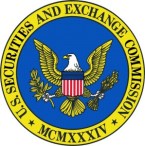Securities and Exchange Commission chairman Jay Clayton on Wednesday offered some of his most definitive comments to date on whether the sort of crypto-tokens offered by many blockchain-based startups to fund initial development of their technology represent securities akin to stocks and bonds, and therefore subject to regulation by the SEC and other government agencies.
 “A token, a digital asset, where I give you my money and you go off and make a venture, — you have some company you want to start or something –and in return for me giving you my money you say, I’m going to give you a return, or you can get a return in the secondary market by selling your token to someone, that is a security. And we regulate that,” he said in an interview on CNBC. “We regulate the offering of that security and we regulate the trading of that security.”
“A token, a digital asset, where I give you my money and you go off and make a venture, — you have some company you want to start or something –and in return for me giving you my money you say, I’m going to give you a return, or you can get a return in the secondary market by selling your token to someone, that is a security. And we regulate that,” he said in an interview on CNBC. “We regulate the offering of that security and we regulate the trading of that security.”
Asked whether that meant that, in his view, “most” initial coin offerings (ICOs) being marketed today are in fact securities Clayton replied, “correct.”
Clayton distinguished ICO tokens from cryptocurrencies like Bitcoin, which he said do not fit the legal definition of a security.
“Cryptocurrencies, these are replacements for sovereign currencies — replace the dollar, replace the yen, replace the euro with Bitcoin — these are not securities,” he said.
He was less definitive regarding crypto assets like Ether and Ripple, which can serve multiple functions, saying the determination of their status would be fact and circumstance dependent, but added “We are not going to do any violence to the traditional definition of a security that has worked well for a long time.”
Clayton’s comments hold obvious implications for many startups, including many rights-tech startups, that have issued virtual tokens in connection with their launch and initial capitalization strategy. In most cases, those tokens are offered via self-published “white paper,” which typically includes far less information about the issuer and the risk factors in the offering than in the registration statements companies issuing conventional securities are required to file with the SEC.
Token issuers also generally do not follow SEC rules regarding quarterly and annual financial disclosures.
Most crypto startups have sought to side-step the question of SEC registration by claiming their tokens are functional elements of their platform or application, such as by limiting access to their networks to token holders, or giving token holders a rule in network governance, and are therefore not equivalent to equity ownership in the venture. But many ICOs also carry at least an implicit promise of appreciation in value as network usage increases, which could bring them within Clayton’s definition of a security.
The SEC and the Commodity Futures Trading Commission (CFTC) have been wrestling with whether and how to regulate the issuing and trading of crypto assets, and the uncertainty around their status has both roiled markets and led to a mini-gold rush among ICO issuers looking to cash in before regulators come knocking.
The largely unregulated ICO market has produced a high failure rate even by the standards of startup enterprises, as well as instances of outright fraud. According to a tally by Bitcoin.com, 46 percent of ICO crowdsales in 2017 had already failed or vanished by February 2018.
That may start to change.
“If you have an ICO, or a stock, and you want to sell it in a private placement, follow the private placement rules,” Clayton said. “If you want to do an IPO with a token, come see us.”
[arve url=”https://www.cnbc.com/video/2018/06/06/sec-chairman-cryptocurrencies-like-bitcoin–not-securities.html” /]

 Apart from trading Bitcoin, just about the hottest application running on a blockchain at the moment is
Apart from trading Bitcoin, just about the hottest application running on a blockchain at the moment is